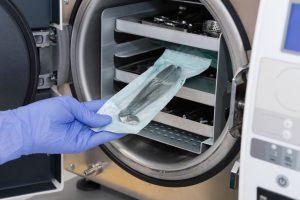Healthcare is a noble profession. The personnel in this field can help people survive, or at the very least, improve their quality of life substantially. However, it is essential to note that doctors and nurses aren’t the only professionals in this sector and that there is more to healthcare than meets the eyes.
While most people may never realize it, a hospital is more than some equipment, doctors, and nurses. An entire infrastructure stands behind what is outwardly prominent. This includes professional administrative, legal and financial bodies and also kitchen staff, laundry workers, housekeeping, etc.
Sterile technicians are some of these many people that work behind the scenes in hospitals. So, who are they, and why are they vital to hospital setups? Here are a few details.
What do they do?

Sterilization is a core component of healthcare. In medicine, it is synonymously used with disinfection. It refers to the process of killing all possibly infectious microorganisms that contaminate objects. Whether people know it or not, without sterilization, countless lives would be lost every year to deadly infections.
Sterile technicians are the workers who are responsible for the sterilization needs of an entire hospital. They work in a sterile processing department or SPD. Most of their job revolves around cleaning and decontamination of medical tools such as surgical instruments. They must carefully rinse and scrub off particulate matter such as tissues and blood from these instruments. These instruments are then packaged and put into an autoclave- a machine that disinfects these tools using high-pressure steam and heat.
Sterile technicians must also keep a log of all the processes so that nothing is missed out. Moreover, they are responsible for maintaining a tally of instruments and reporting defects if need be. No device can be sent for use before the logs are signed-off and steps are taken to ensure that the chain of disinfection was completed. This part is just as necessary as the process itself because, without it, contaminated devices may find themselves in the hands of the surgeons.
These technicians may also be called upon to clean up tables on which instruments are laid out or the ‘beds’ on which patients are operated.
Education Requirements
Let’s get one thing out of the way- sterile technicians may never earn as much money as a physician or surgeon. But ask yourself this- is that all that matters when choosing a profession? I’m sure most of you will find that your answer is no.
One significant advantage that sterile tech has over surgery or medicine is that it requires much less effort to become a professional in the field. A medical student must go through 4 years of undergraduate education, four years of med school, and a 3 to 8-year residency period before being considered a fully trained doctor. At the end of this period, many may find themselves burdened with mental exhaustion and crippling financial constraints brought upon by student loans.
On the other hand, sterile technician training is much shorter, cheaper, and more straightforward. Short certification courses are offered by several institutes, many of which let you take them online as well. While these courses are variable in length, ranging from a few weeks to 6 months.
They have a combination of theory courses and practical work. The theory is based on microbiology, standard disinfection procedures, packaging, etc. Lab work teaches hands-on skills such as how to handle surgical instruments, how to clean them, and so on.
Career Outlook
Since all hospitals require SPDs, and all areas need hospitals, sterile tech jobs are always high in demand. In fact, in a time where many jobs are being outsourced to automation, pure tech is a growing field.
One can expect to find a trainee job right after completing their diploma. As you can expect, these jobs don’t pay as much but do give you a good feel for the work. You can then apply to a higher paying job as you gain more experience under your belt and even land yourself in a managerial position in an SPD.
These days many SPDs actively search for board-certified technicians with a CRCST or CBSPD. To get these certifications, technicians must work in SPD for the stipulated period and then pass a qualifying exam. Individuals with these on their resume are more likely to get a higher paying job and have a better career prognosis overall.
Conclusion:
It’s a sad truth in our society that young students are often forced into careers against their choice. This may be due to peer pressure, family pressure, or economic burdens. Adolescents grow up believing that if they aren’t corporate bankers, lawyers, engineers, doctors, etc., they are failures in life. This is not the case, and it also couldn’t be further from the truth.
Careers in a lesser-known field such as sterile tech are fast coming into the limelight. This is because it requires less time and money to get into the area after which you can make a respectable living doing a relatively easy job. I know I’d trade student loans, stress, and long shifts for a little less money. Wouldn’t you?
Author Bio:
Evie Harrison is a blogger by choice. She loves to discover the world around her. She likes to share her discoveries, experiences and express herself through her blogs. Find her on Twitter:@iamevieharrison







